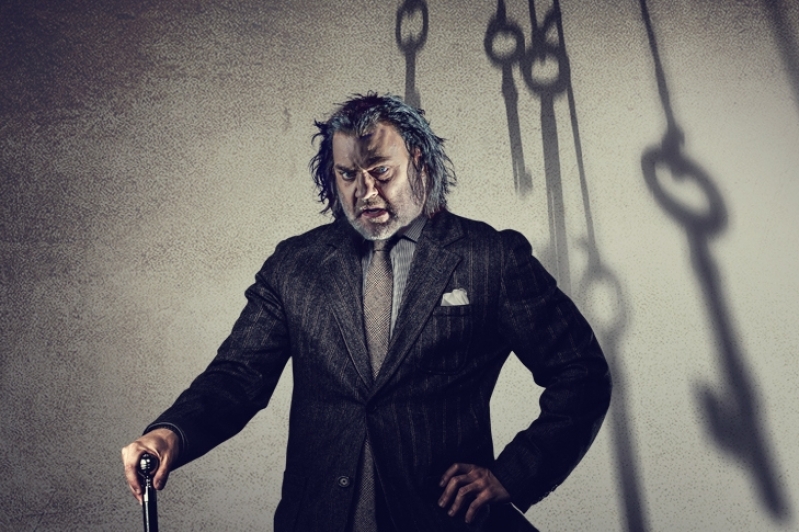
Coronavirus may have done for Welsh National Opera’s new production of Bartók’s Bluebeard’s Castle in our Summer 2020 Season but nevertheless, we would still like to offer you some insight in to this intriguing and powerful opera.
Béla Bartók (1881-1945) is considered to be one of the most important and influential composers of the 20th century. Bartók along with Franz Liszt are regarded as Hungary’s greatest composers. Bartók was a precocious musical talent, composing from the age of nine and performing at his first public recital aged 11. He trained at the Royal Academy of Music, Budapest and was greatly influenced by the music of Richard Strauss and Claude Debussy. Bartók was also interested in Hungarian and Magyar (gypsy) folk music traditions and its themes are often woven in to his music.
Duke Bluebeard’s Castle (A kékszakállú herceg vára) was written between 1911 and 1917. The libretto was by Bartók’s poet and friend, Béla Balázs, based on the French ‘fairy tale’ La Barbe-bleue by 17th century writer Charles Perrault. The opera was premiered at the Royal Hungarian Opera House, Budapest on 24 May 1918. It is regarded as a significant Modernist Expressionist piece. The story reflects a popular narrative in fin de siècle theatres across Europe: the struggle between the sexes – as women had begun to challenge conventions in society at large. Bluebeard also has parallels with other allegorical stories of ill-fated female curiosity such as Eve, Lot’s wife, Psyche and Pandora. It is considered to be a profoundly personal work too, rooted in Bartók’s rather complicated relationships with women. The opera can also be seen as a study of a disturbed man: obsessive, violent and self-pitying. The setting of the castle with its seven locked doors, which Bluebeard’s new and doomed young bride Judith begs for the keys so she may unlock them, are openings in to Bluebeard’s troubled interior mind, his violence and personal history.
After Bluebeard’s Castle, the rest of Bartók’s musical career was affected by political unrest, the fall-out from the First World War, revolutions and rise of communism in Hungary and Europe. He was deeply disturbed by the rise of Nazi Germany and shadow of another World War looming. Bartók reluctantly emigrated to America in 1940. Although disillusioned with the politics and institutions of his country, he remained passionate about Hungarian culture and people. Although Bartók struggled at first in New York, the music he composed there remains some of his most popular and enduring. Diagnosed with leukaemia in 1944 his health deteriorated rapidly and he died in 1945, aged 64.
Bluebeard’s Castle was Bartók’s only opera, but its influence is profound. It remains a haunting and thrilling hour-long score and a testament to Bartók’s art. In the late 1980s after the fall of communism in Hungary, Bartók’s remains were transported from his burial site in New York back to Budapest for a state funeral, befitting a great composer.



